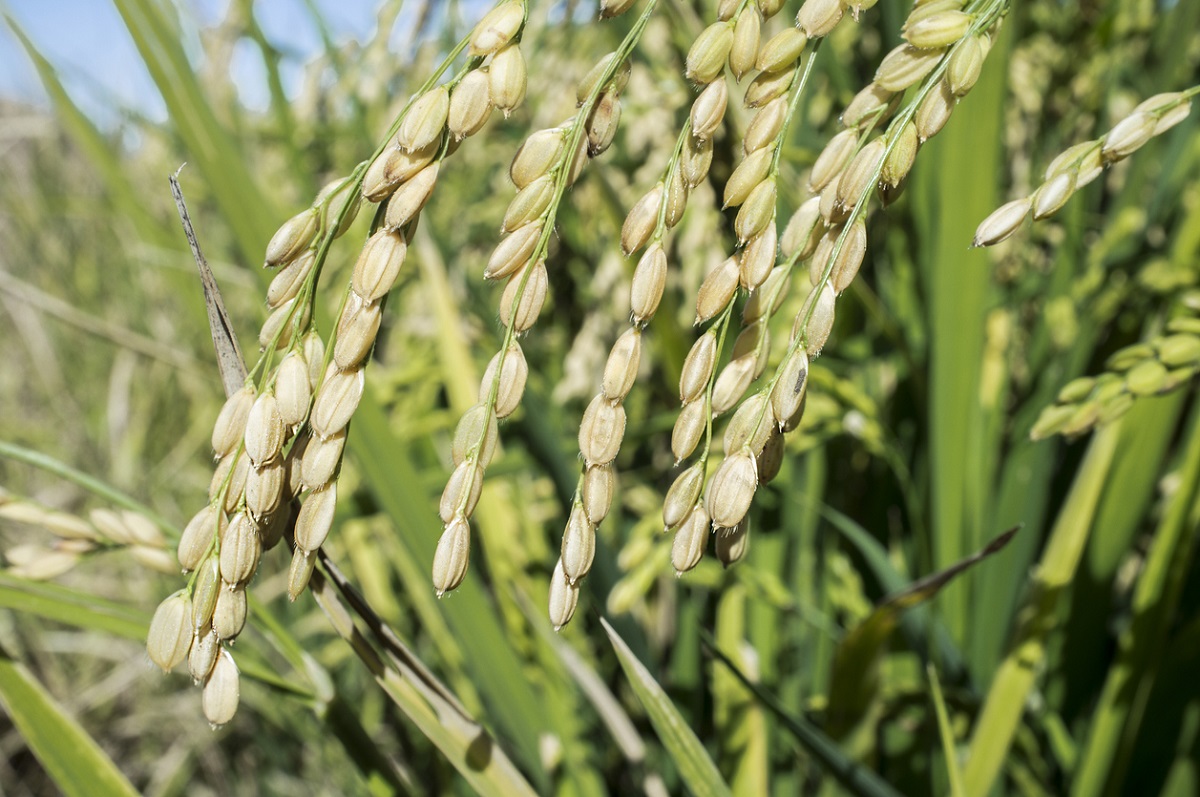
Experts Pinpoint Transcription Factors Vital in Rice Caryopsis Filling
February 19, 2020| |
Exposure to heat usually causes obstructed grain filling during caryopsis development. This leads to a loss of yield. Because this mechanism is not yet fully understood, Huazhong Agricultural University scientists explored on the functions of transcription factors that might be involved in the process. Their findings are published in bioRxiv.
Two rice caryopsis-specific transcription factors, ONAC127 and ONAC129, have been found to respond to heat stress and are involved in the caryopsis filling process. To know more about their functions, the researchers obtained CRISPR-Cas9 induced mutants and overexpression lines of them. This led them to the discovery that both knock-out and overexpression plants exhibited incomplete filling and shrunken caryopses, which was more severe when exposed to heat stress. Further analyses also showed that ONAC127 and ONAC129 are mainly involved in stimulus response, cell wall construction, and nutrient transport.
The findings may indicate that ONAC127 and ONAC129 regulate caryopsis filling through sugar transportation and abiotic stress responses. Overall, the study demonstrates the transcriptional regulatory networks involving ONAC127 and ONAC129, which synchronizes several pathways to control caryopsis development and heat stress response during the rice filling stage.
Read more results in bioRxiv.
| |
You might also like:
- Genetic Map Reveals Heat Tolerance Traits in Peas
- Genome-Wide Analysis of Heat Shock Transcription Factors in Wheat Ancestors
- Pocket K No. 54: Plant Breeding Innovation: CRISPR-Cas9
Biotech Updates is a weekly newsletter of ISAAA, a not-for-profit organization. It is distributed for free to over 22,000 subscribers worldwide to inform them about the key developments in biosciences, especially in biotechnology. Your support will help us in our mission to feed the world with knowledge. You can help by donating as little as $10.
-
See more articles:
-
News from Around the World
- Get Instant AgBiotech News on Facebook Messenger
- Researchers Eye Sending Cotton to Space for Genetic Information
- USDA Reports Significant Agri-biotech Progress in the Philippines
- Independent Science-based Regulation Needs Defending from Activists and Community Ignorance
- Scientists Release Most Complete Genetic Map of Spanish Peppers
-
Research Highlights
- Virus Tolerant Citrus Developed Using a Combination of Biotech Tools
- Concentration of Transgenic Protein in Single Events are Comparable with that of Conventionally-bred Stacks
-
Plant
- Two Gene-Edited Traits for Rice to Increase Productivity for Rice Farmers
- Experts Pinpoint Transcription Factors Vital in Rice Caryopsis Filling
- Regional Expert Consultation on Gene Editing in Agriculture and its Regulation
-
Read the latest: - Biotech Updates (December 10, 2025)
- Gene Editing Supplement (November 26, 2025)
- Gene Drive Supplement (February 22, 2023)
-
Subscribe to BU: - Share
- Tweet

